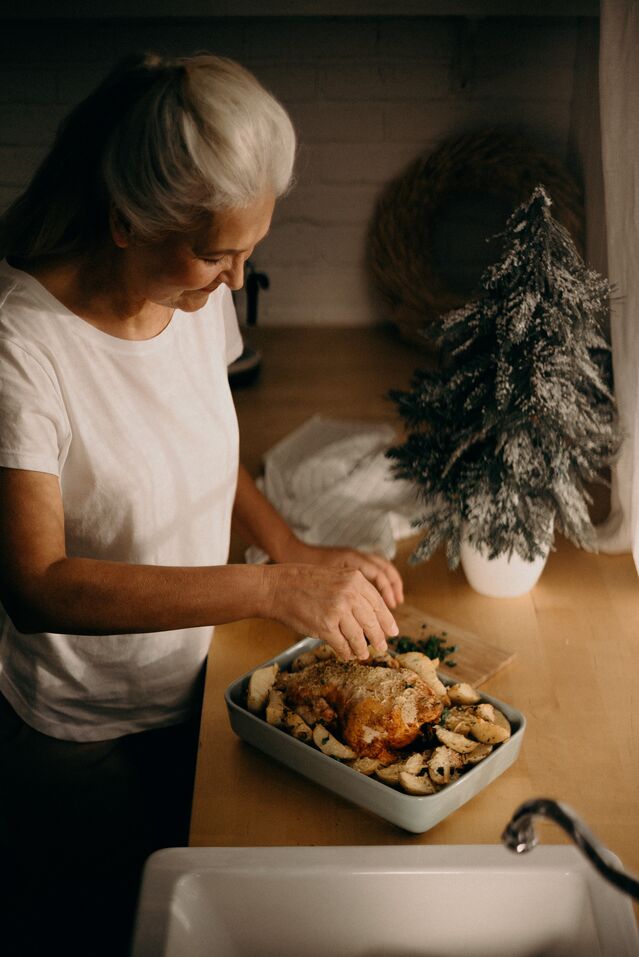Coronavirus Disease 2019
Yes, You Can Have a Sober Thanksgiving
Six tips to make a sober Thanksgiving great
Posted November 7, 2021 Reviewed by Hara Estroff Marano
Key points
- By setting good boundaries, you can limit triggers and have a happy and sober Thanksgiving.
- Connecting with others in recovery will allow you to focus on what's most important to you, while still showing up for holiday events.
- Prayer and meditation ground us. Try praying and meditating before, during, and after difficult events.
- Do what your heart tells you. If that means volunteering or helping to cook, do that!

Thanksgiving can be a difficult time of year for people who may be new to or contemplating recovery from substance abuse, particularly alcohol. Here are six tips to help you have a fantastic sober Thanksgiving.
Limit Time with People Who Are Difficult for You
One thing that the Covid-19 pandemic has taught us is that it’s OK to limit time with people, even family, especially if relationships are tenuous or toxic. There is no requirement that you spend time with people who are not good for you. If you feel like you want to spend time with challenging family members, limit the time you are with them. You don’t have to spend the whole day. Go just before the meal and stay for 30 minutes after. Setting boundaries with kindness is healthy.
Volunteer
One of the best things you can do for yourself and others is to volunteer on Thanksgiving Day—and all weekend. There are food banks that need help before Thanksgiving, homeless shelters and community centers that provide food on Thanksgiving, and community groups will have started to collect everything from toys to coats on the day after Thanksgiving.
Volunteering allows you to connect with like-minded people who have similar interests and to give to people in need. Go where you are called to be of service; just make plans ahead of time to prepare for any Covid-19 protocols (such as testing or proof of vaccination) that may be in place.
Participate in 12-Step Meeting Marathons
For those who are involved in 12-step groups, Thanksgiving is very often a time for marathon meetings. Clubhouses often have meetings 24 hours a day. Many offer dinner, so that no one has to be alone for the holiday. Find out what the events are in your local area. Again, as venues reopen, check the Covid-19 guidelines of the group you want to attend.
Bookend Your Family Events
“Bookending” refers to going to a 12-step meeting or making a 12-step call before and after your potentially difficult event. Sharing time with others in recovery before your event can make it easier to spend a few hours with people who may trigger you. Checking in after the event will allow you to calm yourself if you have been upset.
Pray and Meditate
Quiet time is important before heading into any activity that may be anxiety-provoking. Spending time in prayer or meditation before you go to a difficult Thanksgiving can help you focus on your reasons for going—to be of service to elderly family members or to take pressure off the host/cook. Being clear about your reasons for going and checking in with yourself can make a big difference. It’s also OK to step out for a few minutes of quiet time during Thanksgiving if you find that your nerves are frayed.
Don’t Take the Bait
If you have relatives who have different politics, are rude, or are simply difficult, you have a choice as to whether or not you take the bait. Yes, your loud uncle will likely be loud and offensive at this event, because that’s who he is. You can choose not to rise to the taunts that trigger you. Instead, turn your attention to someone you don’t often get to see or ask questions of someone who is doing something interesting in their life. Go into the kitchen and help serve the pie. You have a choice about where you put your energy and attention. Don’t give it to people who harm you.
Results
If you keep these tips in mind, it will be easier to keep your mind off drinking or drugs. Those are a means of escaping your feelings. Instead of escape, set yourself up to participate in activities you don’t need to escape from, and get support in difficult situations.


